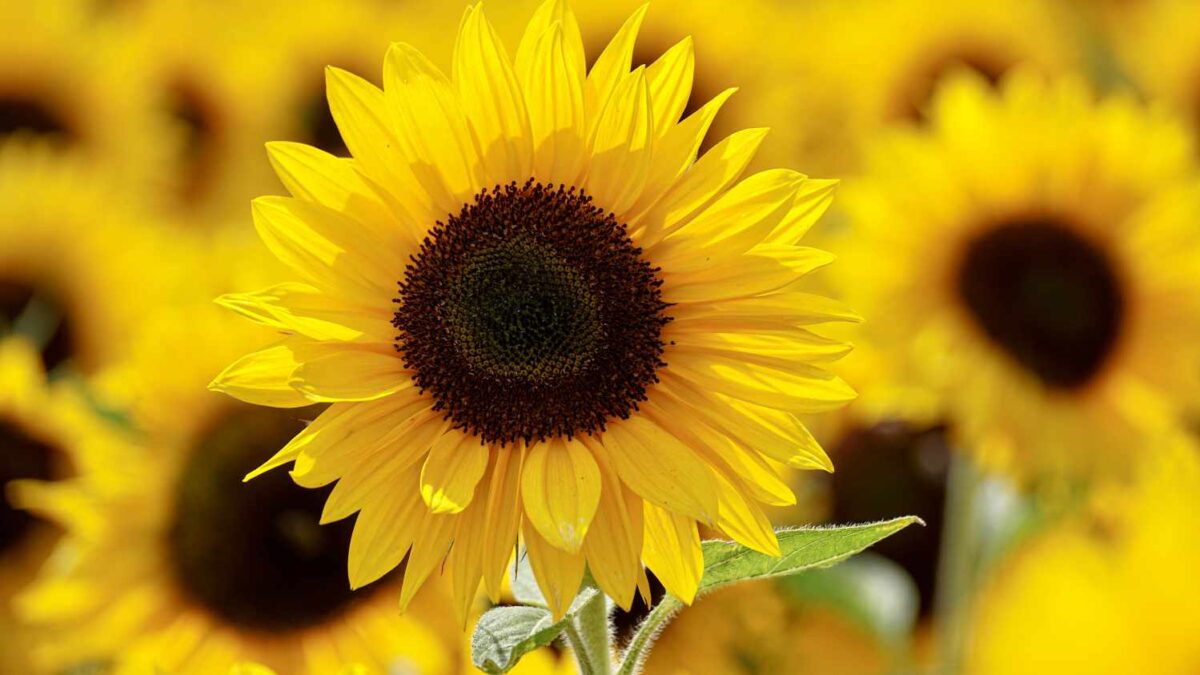Sunflowers are one of the most popular flowers to grow in gardens. They are easy to care for and produce large, beautiful blooms that can brighten up any space. If you are thinking about growing sunflowers, this article will provide you with all the information you need to get started.
Choosing the Right Location
The most important factor in growing sunflowers is to choose the right location. Sunflowers need full sun, at least six hours of direct sunlight per day. They also need well-drained soil. If your soil is not well-drained, add some compost or sand to improve drainage.
When to Plant Sunflower Seeds
The best time to plant sunflower seeds is in the spring, after the last frost. Sunflowers can be planted directly in the ground or started indoors. If you are planting sunflower seeds directly in the ground, wait until the soil has warmed up to at least 60 degrees Fahrenheit. If you are starting sunflower seeds indoors, plant them four to six weeks before the last frost.
How to Plant Sunflower Seeds
To plant sunflower seeds, sow them 1/2 inch deep and 2 to 3 inches apart. Water the seeds well and keep the soil moist until they germinate. Once the seedlings have emerged, thin them to 12 to 18 inches apart.
Caring for Sunflowers
Once your sunflowers are established, they are relatively easy to care for. Water them regularly, especially during hot, dry weather. Sunflowers also benefit from a monthly application of fertilizer. You can use a balanced fertilizer, such as a 10-10-10 fertilizer.
Staking Sunflowers
Large sunflower varieties may need to be staked to prevent them from toppling over in strong winds. To stake a sunflower, drive a sturdy stake into the ground next to the plant. Then, tie the sunflower stem to the stake with a soft, flexible material, such as twine or garden tape.
Harvesting Sunflower Seeds
When the sunflower heads are dry and brown, they are ready to harvest. To harvest the seeds, cut the sunflower head off the plant and let it dry in a cool, dry place. Once the seeds are completely dry, you can remove them from the head and store them in an airtight container for future use.
Here are some additional tips for growing sunflowers:
- Sunflowers are susceptible to a variety of pests and diseases. To prevent problems, it is important to inspect your plants regularly and take action to control any pests or diseases that you find.
- Sunflowers can be grown in containers. If you are growing sunflowers in containers, choose a container that is at least 12 inches deep and wide.
- Sunflowers are a great addition to any garden. They are beautiful, easy to care for, and provide a source of food for birds and wildlife.
I hope this article has given you all the information you need to get started growing sunflowers. With a little care and attention, you can enjoy these beautiful flowers for many years to come.

